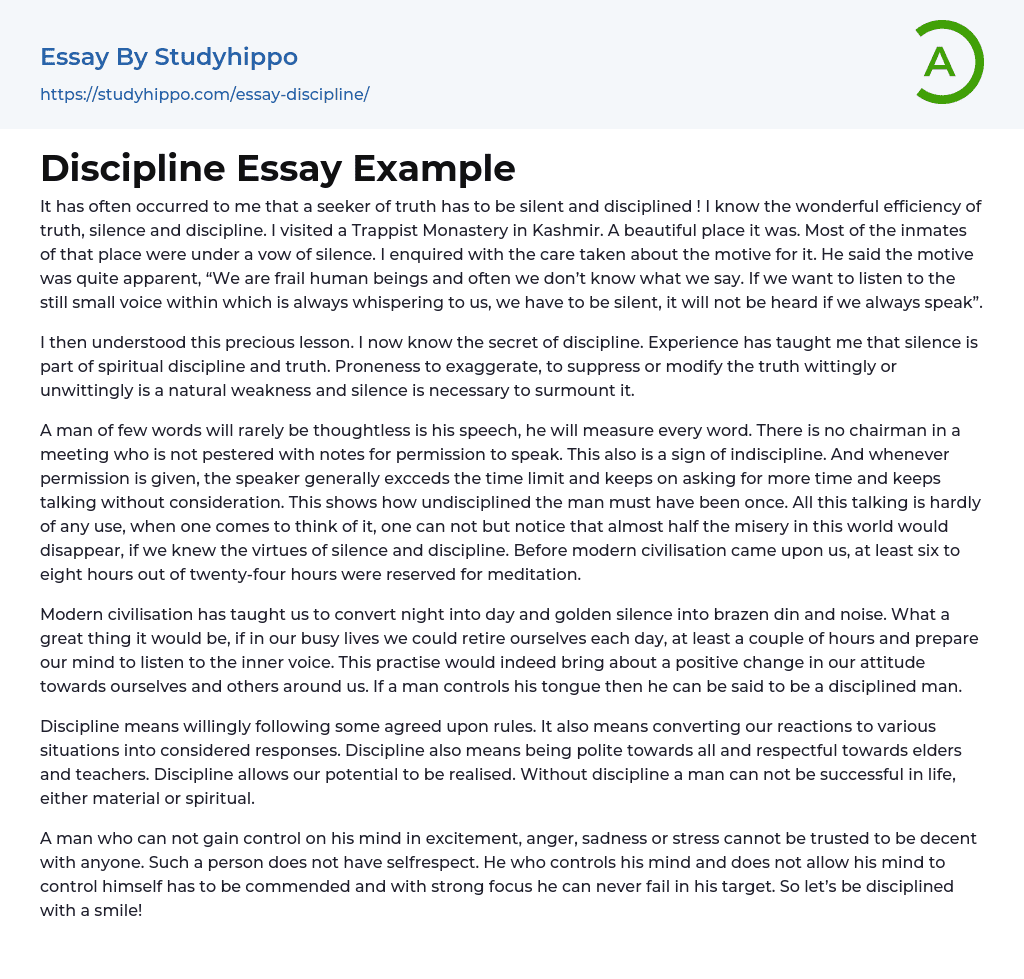The pursuit of truth requires the practice of silence and discipline, which are highly powerful. I came across a peaceful Trappist Monastery in Kashmir during my visit, where the majority of residents observed a vow of silence. Curious about this practice, I asked a monk to enlighten me. The monk explained that as mere human beings, we often speak without fully understanding the impact our words can have. To listen to our quiet inner voice constantly, we must maintain silence. Otherwise, amidst nonstop talking, we will fail to hear it.
The lesson I learned is the secret of discipline, which involves the importance of silence in spiritual practice and truth. Experience has taught me that it's natural to have a tendency to exaggerate, suppress, or alter the truth, whether consciously or unconsciously. To overcome this weakness, practicing silence is crucial.
<
...p>A man who is not talkative tends to think carefully about what he says, showing thoughtfulness in his speech. In meetings, the chairman is often bothered by requests for permission to speak, which indicates a lack of discipline. Furthermore, when permission is granted, the speaker tends to exceed the allotted time and keeps requesting more time without considering others. This behavior suggests a lack of discipline in the past. However, all this excessive talking seems to be pointless. It becomes apparent that if we understood the value of silence and discipline, almost half of the suffering in the world would disappear.
Before modern civilization, people used to dedicate six to eight hours out of a twenty-four-hour day for meditation.
In our modern world, there is a constant push to prioritize productivity and busyness over introspection and peace. However, i
would be highly advantageous if we could take some time each day to embrace calmness and connect with our inner thoughts. This practice has the potential to greatly enhance our self-awareness and understanding of others. Many believe that individuals who have mastered their language also possess true self-discipline.
Discipline is the act of willingly adhering to agreed upon rules, as well as transforming our reactions into thoughtful responses. It also entails treating everyone with politeness and showing respect towards elders and teachers. Discipline is essential for unlocking our potential. Without it, one cannot achieve success in either material or spiritual aspects of life.
A man who cannot control his mind in moments of excitement, anger, sadness, or stress cannot be trusted to behave decently towards others. This individual lacks self-respect. On the other hand, someone who effectively controls their mind and refuses to let it dominate them deserves recognition. By maintaining a strong focus, they will never falter in their pursuits. Therefore, let us maintain discipline with a smile!
- Ambition essays
- Anger essays
- Betrayal essays
- Boredom essays
- Confidence essays
- Courage essays
- Desire essays
- Disgrace essays
- Doubt essays
- Empathy essays
- Fairness essays
- Fear essays
- Feeling essays
- Forgiveness essays
- Grief essays
- Guilt essays
- Happiness essays
- Harmony essays
- Hate essays
- Honesty essays
- Honor essays
- Hope essays
- Humanity essays
- Inspiration essays
- Kindness essays
- Laughter essays
- Loneliness essays
- Lost essays
- Loyalty essays
- Need essays
- Passion essays
- Pressure essays
- Pride essays
- Regret essays
- Respect essays
- Responsibility essays
- Sarcasm essays
- Shame essays
- Suffering essays
- Suspense essays
- Tolerance essays
- Administration essays
- Architect essays
- Discipline essays
- Doctor essays
- Engineer essays
- Farmer essays
- Hunter essays
- Labor essays
- Model essays




